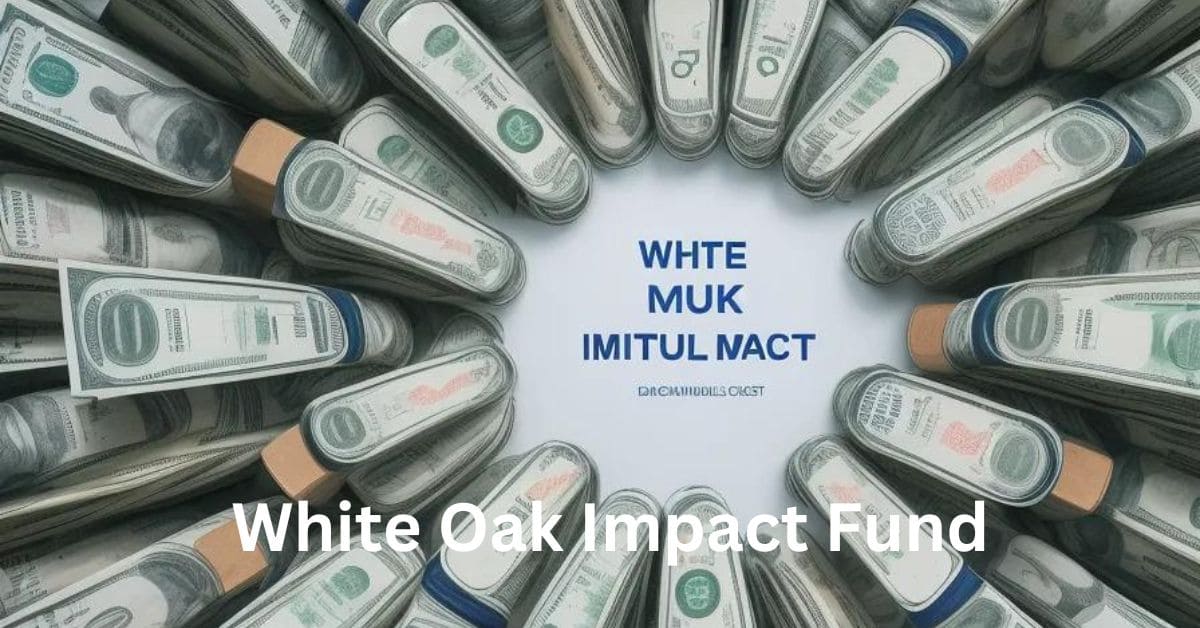White Oak Global Advisors Lawsuit: Understanding the Controversy

White Oak Global Advisors, a respected investment firm specializing in asset-based lending and private credit, has become the focus of several lawsuits over the years. While lawsuits are not uncommon for large financial institutions, the White Oak Global Advisors lawsuit has garnered significant attention due to the nature of the claims and the firm’s standing within the industry.
These legal challenges have raised concerns about the management practices and operational integrity of the firm, which, in turn, has prompted further scrutiny from clients, investors, and industry experts alike. This article will dive deep into the key details surrounding the White Oak Global Advisors lawsuits, explain the background behind these cases, and analyze their potential implications.
Background of White Oak Global Advisors
Before delving into the lawsuits, it’s important to understand the background and business model of White Oak Global Advisors. Founded in 2007, the firm focuses on providing financing solutions to middle-market companies that may not have access to traditional funding avenues like bank loans. This includes asset-based lending, equipment financing, and various forms of private credit. The firm has grown significantly over the years, managing billions of dollars in assets.
White Oak’s business model is built on identifying high-potential opportunities in middle-market companies, offering loans, and structuring complex financial solutions. However, this business model comes with inherent risks, including exposure to volatile market conditions, lending risks, and potential legal liabilities—factors that are at the core of the lawsuits faced by White Oak Global Advisors.
Overview of the White Oak Global Advisors Lawsuits
The White Oak Global Advisors lawsuit refers to multiple legal battles that have emerged in recent years, most involving claims of mismanagement, breach of fiduciary duty, or disputes over contractual agreements. These lawsuits have surfaced in both state and federal courts, leading to heightened scrutiny of the firm’s governance and operational conduct.
Allegations of Mismanagement and Breach of Fiduciary Duty
One of the key legal challenges faced by White Oak involves allegations of mismanagement and breach of fiduciary duty. Several plaintiffs, including former investors and clients, have alleged that White Oak misused its management authority by making poor financial decisions that were not in the best interest of its clients.
A fiduciary duty is a legal obligation that requires a company to act in the best interests of its clients. A breach occurs when the company fails to meet this obligation, whether through negligence or intentional misconduct. In some cases, White Oak was accused of taking on excessive risks in its investments, leading to substantial financial losses for its clients.
This particular lawsuit has raised questions about the firm’s internal governance structures and whether proper oversight was in place to protect investors from risky decisions. While the firm has denied these allegations and continues to defend its actions, these lawsuits have had a noticeable impact on White Oak’s reputation.
Disputes Over Contractual Agreements
Another central theme in the lawsuits involves disputes over contractual agreements between White Oak and various stakeholders. Several lawsuits have alleged that the firm violated the terms of its contracts with borrowers, investors, and other third parties. These claims often center around the interpretation of loan agreements and how the firm managed its client relationships.
For example, in some cases, borrowers have claimed that White Oak misrepresented loan terms or failed to deliver on agreed-upon financial commitments. Others have accused the firm of unfairly altering loan terms or imposing unreasonable penalties when borrowers faced financial difficulty.
These disputes have raised concerns about the transparency and fairness of White Oak’s lending practices. While financial institutions frequently face legal disputes over loan agreements, the frequency and nature of the allegations against White Oak have led to questions about whether the firm engages in predatory lending practices or lacks adequate controls to ensure compliance with contract terms.
Regulatory Investigations and Compliance Issues
In addition to private lawsuits, White Oak Global Advisors has also faced regulatory scrutiny from governmental bodies. The firm has been subject to investigations by regulatory authorities for potential violations of financial regulations, including improper disclosures and compliance failures.
Regulatory bodies, such as the Securities and Exchange Commission (SEC), often investigate financial firms to ensure they are adhering to industry standards and regulatory requirements. In White Oak’s case, the firm has been under investigation for issues related to investor reporting, risk management, and transparency in its dealings.
These investigations, while separate from the private lawsuits, have added another layer of complexity to the legal challenges faced by White Oak. Even if the firm is found not to have violated any laws, the investigations alone can tarnish its reputation and create uncertainty among current and potential investors.
Impact of the Lawsuits on White Oak Global Advisors
The White Oak Global Advisors lawsuit has undoubtedly affected the firm’s public image, especially among clients and investors. Financial institutions thrive on trust, and any allegations of mismanagement or breach of fiduciary duty can significantly undermine that trust. The lawsuits have resulted in negative press, which in turn may affect the firm’s ability to attract new clients or retain existing ones.
One of the most immediate impacts is the potential financial liability associated with these lawsuits. If White Oak is found liable for damages, it could face significant financial penalties, which may strain its resources. Furthermore, even if the firm successfully defends itself against the lawsuits, the legal costs of doing so could still be considerable.
The reputational damage may also lead to a loss of business opportunities. In the financial industry, reputation plays a crucial role in securing deals and maintaining client relationships. Any perception of instability or mismanagement could lead potential borrowers and investors to look elsewhere for their financial needs.
How White Oak Global Advisors Is Responding to the Lawsuits
In response to the lawsuits, White Oak Global Advisors has maintained a firm stance, denying any wrongdoing and vigorously defending its actions in court. The company has stated that it has always acted in the best interest of its clients and has followed all legal and contractual obligations.
White Oak has also emphasized its commitment to transparency and regulatory compliance. The firm has taken steps to review its internal processes and strengthen its governance structures to prevent similar issues from arising in the future.
While the lawsuits are ongoing, the company has been proactive in reassuring its clients and stakeholders that it remains financially stable and operationally sound. Whether these efforts will be enough to mitigate the long-term damage caused by the lawsuits remains to be seen.
Broader Implications for the Financial Industry
The White Oak Global Advisors lawsuit is not just significant for the firm itself; it also reflects broader trends and challenges within the financial industry. In particular, these lawsuits highlight the growing scrutiny on private credit firms and the need for more robust regulatory oversight.
Private credit firms like White Oak operate in a relatively unregulated space compared to traditional banks, which makes them attractive to investors seeking higher returns. However, this lack of regulation also means there is greater risk involved, both for the firms and their clients.
The lawsuits against White Oak serve as a reminder that even well-established firms are not immune to legal challenges. As the private credit industry continues to grow, we can expect increased regulatory attention and more stringent compliance requirements, which could reshape the way these firms operate.
FAQs about White Oak Global Advisors Lawsuit
Q1: What is the White Oak Global Advisors lawsuit about?
The White Oak Global Advisors lawsuit involves multiple legal disputes, primarily centered around allegations of mismanagement, breach of fiduciary duty, and contractual disagreements between the firm and its clients, borrowers, and investors.
Q2: Has White Oak Global Advisors been found guilty in any of these lawsuits?
As of now, many of the lawsuits are still ongoing, and White Oak Global Advisors has denied any wrongdoing. The firm is actively defending itself in court.
Q3: How could the lawsuits affect White Oak Global Advisors’ clients?
The lawsuits could impact White Oak’s clients by creating uncertainty about the firm’s stability and financial standing. However, White Oak has assured clients that it remains operationally sound despite the ongoing legal challenges.
Q4: Are regulatory investigations part of the lawsuits?
Yes, in addition to private lawsuits, White Oak Global Advisors has faced regulatory investigations related to compliance issues and potential violations of financial regulations.
Q5: What steps is White Oak Global Advisors taking to address the lawsuits?
White Oak has emphasized its commitment to defending itself against the allegations and has taken steps to strengthen its internal governance and compliance processes.
Q6: Will the lawsuits impact the future of private credit firms?
The lawsuits against White Oak may prompt greater regulatory scrutiny across the private credit industry, potentially leading to more stringent compliance requirements for firms operating in this space.
Conclusion
The White Oak Global Advisors lawsuit has raised significant questions about the firm’s management practices, governance structures, and commitment to its clients. While the firm continues to defend itself in court, the legal challenges have highlighted broader issues within the private credit industry, including the need for greater regulatory oversight.
As the lawsuits progress, the outcome will not only shape the future of White Oak Global Advisors but also influence the way private credit firms operate. Whether White Oak can overcome these legal challenges and restore its reputation remains to be seen. However, the firm’s response to the lawsuits will likely serve as a critical case study for other financial institutions facing similar legal risks.










